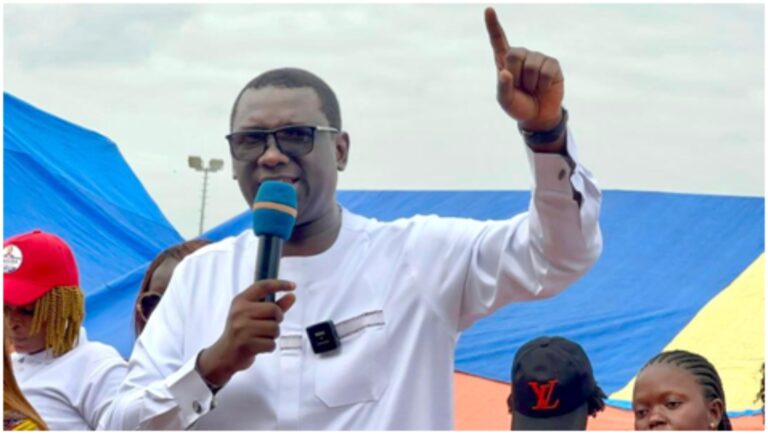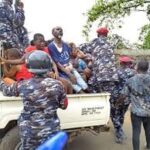Part Seven – From the Margins to the Middle, Dr Ibrahim Bangura’s Vision for Decentralisation and Rural Renewal
By Jarrah Kawusu-Konte
The story of Sierra Leone’s underdevelopment is, in many ways, the story of its forgotten villages, neglected districts, and stifled chiefdoms. For far too long, the country has been governed from a single centre of power, while the vast majority of its people, over 60% of whom live in rural areas according to the World Bank, remain locked out of decision-making and meaningful development.
In these rural spaces, bad roads turn rain into a curse, schools sit with broken roofs, health clinics operate without electricity, equipment or medicine and agricultural potential is wasted because extension services, irrigation, storage and access to markets are but distant dreams. These infrastructure gaps are evidence of a governance system that centralises power, underfunds local administration and marginalises people.
Dr Ibrahim Bangura has made it clear: a country cannot develop if its rural citizens are treated as afterthoughts. Development must begin where the pain is deepest. His vision for decentralisation and rural empowerment emphasizes more than just the creation of new administrative structures for political conveniences. It is about dignity, autonomy, and unleashing local potential.
Drawing from his scholarly research and public policy work and his recent interview on the Liberty Online TV, Dr Bangura has proposed bold, evidence-based reforms. He advocates for functional decentralisation that should ensure that local councils have financial autonomy, human resource capacity and legal authority to act. His proposals align with recommendations from the United Nations Development Programme (UNDP) and the Commonwealth Local Government Forum, which stress that effective decentralisation improves service delivery, accountability and local economic development.
Dr Bangura also believes in the power of rural industrialisation. He envisions the effective harnessing of what he calls the green and blue economies and the creation of District Development Hubs including: localised centres for agro-processing, vocational training, and business incubation, designed to retain youth in rural areas by offering opportunity where they live. He knows that not every ambition must migrate to Freetown. A nation thrives when all its corners are given space to bloom.
He calls for chiefdom-level development compacts, which empower local traditional leaders to coordinate with government agencies and NGOs in designing homegrown solutions. “Development must stop feeling like a visitor,” he once told me. “It must become a citizen of every community.”
Dr Bangura also supports inclusive rural digitalisation, ensuring that rural children and farmers benefit from the digital economy through smart farming techniques, e-learning, and mobile financial services. His approach is both practical and visionary, he sees the village not as a place to escape from, but as a frontier to invest in.
This belief is shaped by personal history. Born in Freetown but deeply rooted in Mambolo, Dr Bangura often recalls walking on muddy roads to visit relatives, and hearing the aspirations of farmers who knew what to do but lacked the means. These early memories shaped his lifelong commitment to equitable development.
In his view, decentralisation is more than merely administrative, it is deeply ethical and deeply moral. It is about restoring a sense of agency to communities long stripped of voice. It is about distributing development fairly, healing the rural-urban divide, and uniting a nation fractured by imbalance.
As the APC approaches its National Delegates Conference, the time has come to elect a leader who sees all of Sierra Leone, not just its capital. A leader who knows that rural votes deserve more than token attention, and that real development is measured by whether life improves in Bonthe, Falaba, Koinadugu and Pujehun, not just in boardrooms.
Dr Ibrahim Bangura is that leader. He will heal the broken promises of rural Sierra Leone. He will unite our nation through empowered communities. He will build a system where no Sierra Leonean is left behind, regardless of where they were born or where they live.
Let us heal, unite and build, with Dr Ibrahim Bangura.
………………………………………………
Jarrah Kawusu-Konte is a communication Specialist, former Political Editor of the We Yone Newspaper (2003 – 2006) and former Communications Manager and Director of Communications at State House (2011 – 2018). Former APC MP candidate for Koinadugu District in 2002. A son of the soil, a believer in redemption, and a servant of hope.







Cities’ message to world leaders: Unlock direct climate finance for Africa’s urban future